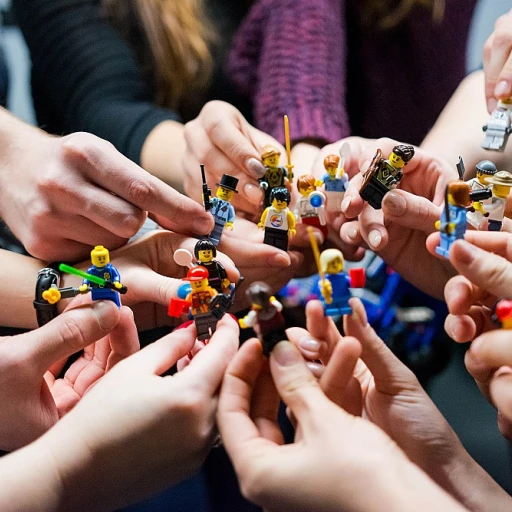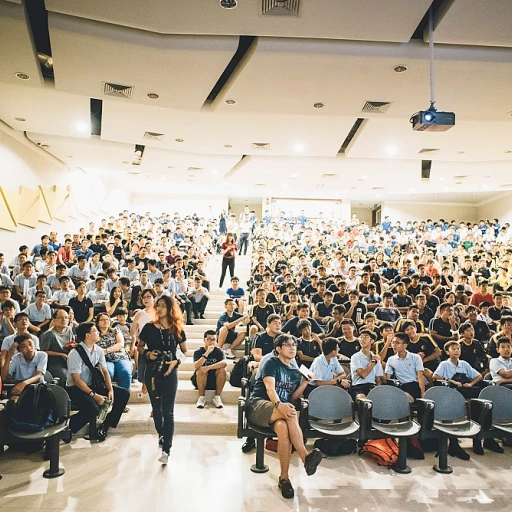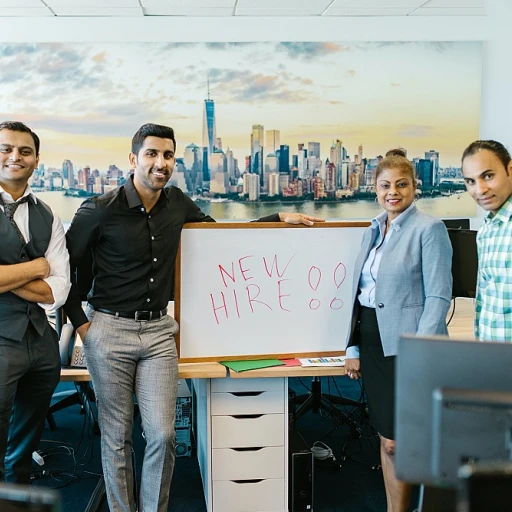
Key Responsibilities of Hotel Housekeeping Staff
Key Functions and Duties in Hotel Housekeeping
The role of hotel housekeeping is a cornerstone in the hospitality industry, ensuring a welcoming and comfortable stay for guests. Housekeeping staff are tasked with maintaining cleanliness and orderliness in guest rooms and common areas. This job demands attention to detail and a commitment to service, driving guest satisfaction and, ultimately, the success of the hotel.
Housekeepers' responsibilities primarily include:
- Cleaning guest rooms and replenishing amenities promptly to ensure a spotless experience.
- Reporting any maintenance issues to management to keep rooms in optimal condition.
- Managing linen inventory to meet hotel housekeeping standards.
- Assisting other departments, like the front desk, by ensuring rooms are ready on time for check-in.
- Upholding the hotel's brand and reputation through exemplary cleaning service.
Effective communication skills are vital for housekeeping staff as they often interact with guests and respond to requests and concerns. The description of a housekeeping job may vary depending on the hotel size and service offerings, but the focus remains constant: delivering a superior guest experience through meticulous cleaning and attention to detail. This impacts guest satisfaction directly, often reflected in reviews and repeat visits.
A comprehensive understanding of these responsibilities is essential for anyone interested in a housekeeping job in hotels. Additionally, revenue management may depend on the housekeeping department's efficiency, as well-managed room readiness can improve the hotel's occupancy rates.
To navigate the challenges in the housekeeping job, a well-coordinated team effort is necessary. Housekeepers, managers, and support staff must work in harmony to meet the high standards expected in the hospitality industry, ultimately leading to successful hotel operations.
For more insights on global mobility in the hospitality sector, explore our article on global mobility compensation packages.
Essential Skills for Effective Housekeeping
Core Competencies for Housekeeping Excellence
In the hospitality industry, the role of a hotel housekeeper is pivotal to ensuring guest satisfaction and maintaining the reputation of the establishment. The job description of a housekeeper extends beyond mere cleaning; it encompasses a range of skills that contribute to a seamless guest experience. Here, we delve into the essential skills that define effective housekeeping.
Attention to Detail
One of the most critical skills for a housekeeper is attention to detail. This involves meticulous cleaning of guest rooms, ensuring that every corner is spotless and every item is in its rightful place. A keen eye for detail helps in maintaining the high standards expected in hotel rooms, directly impacting guest satisfaction.
Time Management
Efficient time management is crucial in the housekeeping department. Housekeepers must clean and prepare rooms within a limited timeframe, often under the pressure of high occupancy rates. Effective time management ensures that rooms are ready for guests promptly, contributing to a positive guest experience.
Communication Skills
Communication skills are vital for housekeeping staff, enabling them to coordinate with the front desk and other departments. Clear communication ensures that guest requests are fulfilled efficiently and any issues are addressed promptly. This skill also aids in fostering a collaborative environment within the housekeeping team.
Customer Service Orientation
A strong customer service orientation is essential for housekeepers, as they often interact directly with guests. Providing friendly and attentive service can enhance the guest experience, leading to positive reviews and repeat visits. Housekeepers play a significant role in representing the hotel's commitment to excellent service.
Adaptability and Problem-Solving
Housekeeping staff must be adaptable and possess problem-solving skills to handle unexpected situations, such as last-minute room changes or special guest requests. Being able to think on their feet and find solutions quickly is a valuable asset in maintaining smooth operations.
For more insights on the skills required in various roles within the hospitality sector, consider exploring global mobility compensation packages and how they influence job roles.
The Impact of Housekeeping on Guest Satisfaction
The Vital Role of Housekeeping in Ensuring Guest Contentment
The housekeeping department in a hotel plays a pivotal role in maintaining the quality of guest experience, which directly impacts guest satisfaction. Housekeeping staff are responsible for ensuring that rooms and public areas are clean, well-maintained, and prepared to impress guests. The role of a housekeeper involves more than just cleaning; it requires excellent attention to detail, time management, and effective communication skills to meet the guests' expectations. Guest satisfaction is highly influenced by the cleanliness and presentation of hotel rooms and amenities. A spotless environment can enhance the guests' stay, while any neglect in housekeeping service can lead to negative reviews and a decrease in customer loyalty. The hotel housekeeping team's work affects the first impressions and overall comfort of guests during their stay. Moreover, effective housekeeping services contribute to the hotel’s revenue management. Satisfied guests are more likely to return and recommend the hotel to others, enhancing brand loyalty. This positive word-of-mouth can lead to an increase in bookings and, consequently, revenue. The role of hotel housekeeping is integral in supporting the hospitality industry's success by providing top-notch customer service. It’s essential for hotel management to invest in training and development programs for housekeeping staff to refine their service skills. Regular feedback and performance reviews can help housekeepers improve their job role, leading to a better guest experience. Collaborative efforts between housekeeping staff, management, and the front desk are vital in creating an environment that ensures guest satisfaction. For more on optimizing workforce roles in the hospitality sector, explore workforce integration strategies.Training and Development in Housekeeping
Enhancing Housekeeping Skills through Continuous Learning and Development
In the fast-paced hospitality industry, the housekeeping department plays a crucial role in maintaining high standards of cleanliness and guest satisfaction. The demands placed on hotel housekeeping staff require a focus on continuous training and development to ensure they acquire the necessary skills for their job role.
One vital area of development is the cultivation of effective communication skills. Housekeeping staff must liaise with other departments like the front desk and revenue management to optimize the management of guest rooms. Proficient communication fosters seamless coordination and enhances guest experience.
Another essential focus is on honing service skills. Recognizing the impact of the housekeeping job on guest satisfaction, hotels prioritize training programs that emphasize customer service excellence. This not only improves the quality of service provided by the housekeeping team but also supports overall hotel performance.
Time management and adaptability are also critical development areas for a hotel housekeeper. Housekeeping staff must often juggle multiple tasks, ensuring that rooms are prepared within tight schedules. Training programs often include scenarios to improve their efficiency and adaptability under time constraints.
The housekeeping manager plays an essential role in shaping these development efforts. By identifying individual and team training needs, they craft programs that not only cater to current operational demands but also anticipate future challenges, including technological advancements in cleaning methodologies.
Investments in the development of housekeeping staff elevate the role of the housekeeping department within the hotel's ecosystem, enhancing the staff's work experience and overall morale. This focus on learning strengthens not only the team but also the guest's perception of the hotel, directly influencing guest loyalty and hotel revenue.
Challenges Faced by Housekeeping Teams
Overcoming Daily Operational Hurdles
In the bustling environment of hotel housekeeping, teams face numerous challenges on a daily basis. The role of a housekeeper involves a diverse array of tasks, from cleaning guest rooms to ensuring that hotel rooms meet the highest standards of guest satisfaction. However, despite their essential job, many housekeeping staff encounter various obstacles that can impact their work efficiency and overall job satisfaction.High Turnover Rates and Staffing Shortages
One of the pressing issues within the housekeeping department is the high turnover rate of staff. The multinational nature of many hotels means that staffing shortages can arise unexpectedly, impacting entire housekeeping teams. This places added pressure on the hotel housekeeping service skills of existing team members, who must balance increased workloads while maintaining service quality standards.Time Management and Efficiency
Effective time management is critical for housekeepers striving to complete their tasks within limited timeframes. Housekeeping staff often struggle with managing the numerous room cleanings needed in a single day, especially during peak seasons when the hotel is at full capacity. The demand for precision and speed can be intense, highlighting the need for excellent communication skills and teamwork among housekeepers.Guest Complaints and Expectations
Another significant challenge is managing guest complaints and expectations. Service-oriented roles in the hospitality industry demand a keen awareness of guest needs, and housekeepers must demonstrate high levels of customer service and adaptability. Any negative impact on guest rooms can influence the guest experience and consequently affect the hotel's revenue management strategy.Safety and Health Regulations
Maintaining compliance with safety and health regulations presents its own challenges. Housekeepers must be well-versed in using cleaning agents safely and effectively to protect both themselves and guests. Continuous training and development in housekeeping procedures are vital to ensure the well-being of the housekeeping team and enhance the overall guest satisfaction with the hotel’s cleanliness standards.Navigating these challenges requires not only experience but also strategic support from hotel managers. Strong leadership within the hotel housekeeping job description can motivate staff and foster an environment where housekeepers are encouraged to thrive, ensuring that their essential skills contribute positively to the hospitality industry.
Innovations and Technology in Housekeeping
Embracing Technology for Efficient Housekeeping
The hospitality industry is rapidly evolving, with technology playing a pivotal role in enhancing the effectiveness of hotel housekeeping. In the modern hotel, introducing technology-driven solutions can bolster the efficiency of housekeeping tasks, leading to improved guest satisfaction and more streamlined operations.
One area where technology is making a significant impact is in the management of hotel rooms and housekeeping staff. Automated housekeeping management systems are helping managers and teams keep track of room status, allocate tasks efficiently, and ensure that every room meets the high cleaning standards expected by guests. Through these systems, housekeeping teams can have real-time updates, allowing quicker response times to guest requests and room preparation.
Moreover, mobile apps tailored for housekeeping services are being widely adopted. These apps enable housekeepers to update room status on the go, report maintenance issues directly to the engineering team, and even access guest preferences to personalize service. Such advancements not only enhance the guest experience but also streamline communication skills within the housekeeping department.
Robotic solutions are another innovation adding value to the housekeeping job. With tasks such as vacuuming now being managed by robots, housekeeping staff can focus on other service-oriented duties, ensuring guests enjoy their stay. This reduction in physical workload allows the team to dedicate more time to quality customer service, which is crucial in this job role.
The integration of technology into the housekeeping job description emphasizes the need for continuous training and development, previously highlighted. As these tools evolve, so must the skills of the housekeeping staff. The housekeeping team’s ability to adapt to these changes can have a direct impact on hotel revenue management by reducing operating costs and enhancing guest satisfaction.












